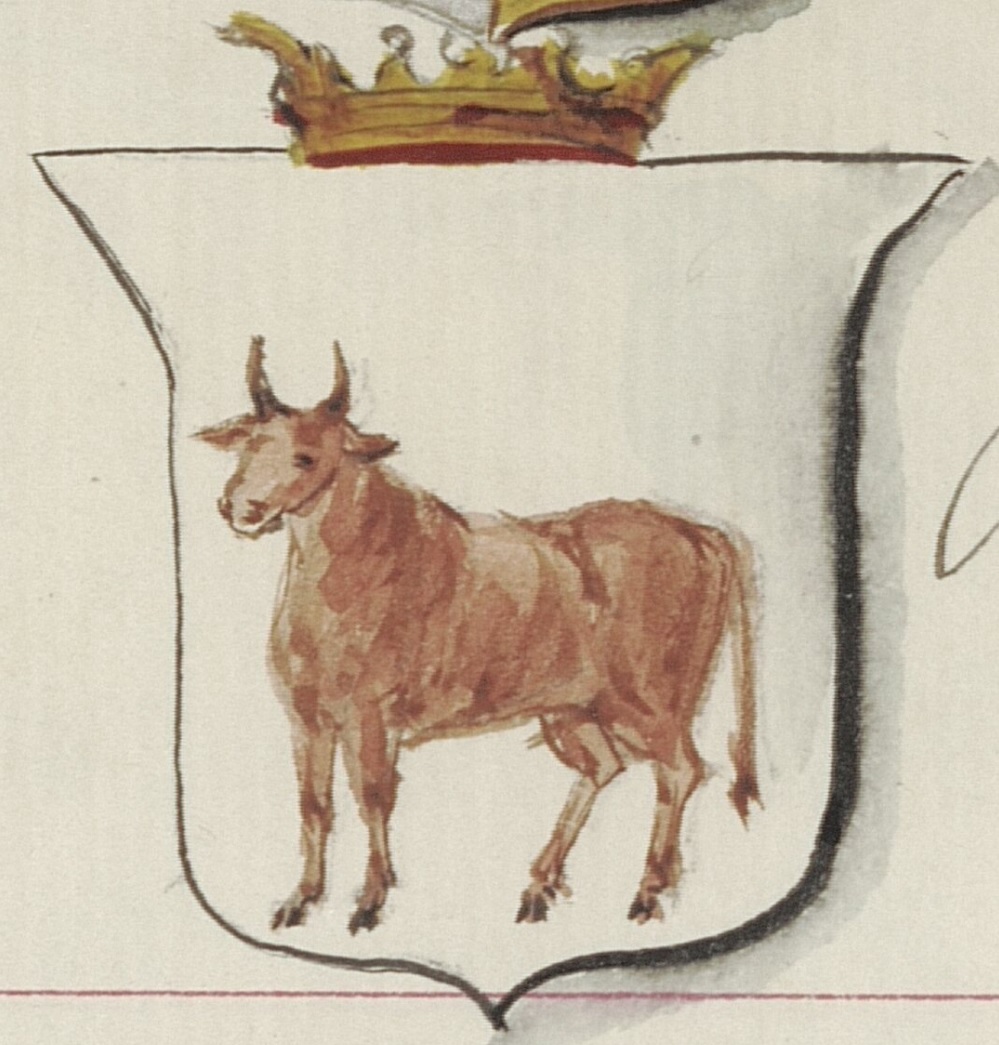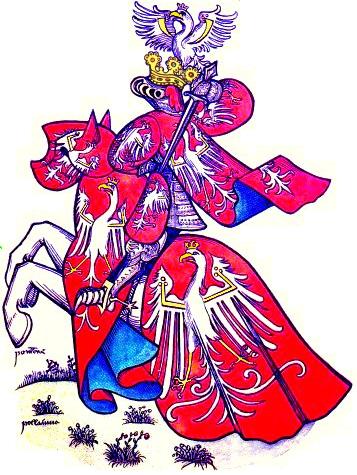|
Poniatowski
The House of Poniatowski (plural: ''Poniatowscy'') is a prominent Polish family that was part of the nobility of Poland. A member of this family, Stanisław Poniatowski, was elected as King of Poland and reigned from 1764 until his abdication in 1795. Since Polish adjectives have different forms for the genders, ''Poniatowska'' is the equivalent name for a female member of this family. History The Poniatowski family became most prominent in the late 18th century and 19th century. In three generations, the family rose from the rank of gentry to that of senator and then to royalty (in an elective monarchy). The first information about the family dates back to the end of the 15th century, when they appeared in Poniatowa, 40 km west from Lublin in about 1446. Their family name derives from that place name. Poniatowa was the residence of several branches of the Poniatowski family: Tłuk, Jarasz and Ciołek. According to the family's history, the family had ties with the ... [...More Info...] [...Related Items...] OR: [Wikipedia] [Google] [Baidu] |
Stanisław August Poniatowski
Stanisław II August (born Stanisław Antoni Poniatowski; 17 January 1732 – 12 February 1798), known also by his regnal Latin name Stanislaus II Augustus, was King of Poland and Grand Duke of Lithuania from 1764 to 1795, and the last monarch of the Polish–Lithuanian Commonwealth. Born into wealthy Polish aristocracy, Poniatowski arrived as a diplomat at the Russian imperial court in Saint Petersburg in 1755 at the age of 22 and became intimately involved with the future empress Catherine the Great. With her connivance, he was elected King of Poland by the Polish Diet in September 1764 following the death of Augustus III. Contrary to expectations, Poniatowski attempted to reform and strengthen the large but ailing Commonwealth. His efforts were met with external opposition from neighbouring Prussia, Russia and Austria, all committed to keeping the Commonwealth weak. From within he was opposed by conservative interests, which saw the reforms as a threat to their traditiona ... [...More Info...] [...Related Items...] OR: [Wikipedia] [Google] [Baidu] |
Stanisław Poniatowski (1676–1762)
Stanisław Poniatowski (15 September 1676 29 August 1762) was a Polish military commander, diplomat, and noble. Throughout his career, Poniatowski served in various military offices, and was a general in both the Swedish and Polish–Lithuanian militaries. He also held numerous civil positions, including those of ''podstoli'' of Lithuania and Grand Treasurer of the Lithuanian army in 1722, voivode of the Masovian Voivodeship in 1731, regimentarz of the Crown Army in 1728, and castellan of Kraków in 1752. Throughout his lifetime, he served in many ''starost'' positions. Poniatowski was involved in Commonwealth politics, and was a prominent member of the Familia, a faction led by the Czartoryski family. On a number of occasions he was in service of Stanisław I Leszczyński, the principal rival of Augustus II for the throne of Poland. Having served under Leszczyński as a military officer and envoy during the Great Northern War, Poniatowski later embraced the Russian-supporte ... [...More Info...] [...Related Items...] OR: [Wikipedia] [Google] [Baidu] |
1764 Polish–Lithuanian Royal Election
The 1764 Polish–Lithuanian royal election was an election to decide on the new candidate for the Polish–Lithuanian throne. Background The Seven Years' War, which ended in 1763, established a new pattern of political alliances in Europe. The Kingdom of Prussia, the Kingdom of Great Britain and the Russian Empire emerged as great powers, while the position of Austria, France, Spain, Sweden and the Ottoman Empire was weakened. As a result of the war, the Russian Empress, Catherine the Great, was in almost complete control of the Polish–Lithuanian Commonwealth. Catherine was supported by the Prussian monarch, Frederick the Great, who hoped to eventually annex Polish provinces of Royal Prussia and Greater Poland. History After the death of Augustus III of Poland, two dominant political camps of Poland expressed their interest to the Polish throne. The Potocki family promoted Hetman Jan Klemens Branicki, while the Czartoryski family backed its leader, Duke Adam Kazimierz Cz ... [...More Info...] [...Related Items...] OR: [Wikipedia] [Google] [Baidu] |
King Of Poland
Poland was ruled at various times either by dukes and princes (10th to 14th centuries) or by kings (11th to 18th centuries). During the latter period, a tradition of free election of monarchs made it a uniquely electable position in Europe (16th to 18th centuries). The first known Polish ruler is Duke Mieszko I, who adopted Christianity under the authority of Rome in the year 966. He was succeeded by his son, Bolesław I the Brave, who greatly expanded the boundaries of the Polish state and ruled as the first king in 1025. The following centuries gave rise to the mighty Piast dynasty, consisting of both kings such as Mieszko II Lambert, Przemysł II or Władysław I the Elbow-high and dukes like Bolesław III Wrymouth. The dynasty ceased to exist with the death of Casimir III the Great in 1370. In the same year, the Capetian House of Anjou became the ruling house with Louis I as king of both Poland and Hungary. His daughter, Jadwiga, later married Jogaila, the pagan Grand ... [...More Info...] [...Related Items...] OR: [Wikipedia] [Google] [Baidu] |
Ksiaze Jozef
The princely houses of Poland and Lithuania differed from other princely houses in Europe. Most importantly, Polish nobility (''szlachta'') could not be granted nobility titles by the Polish kings in the Polish-Lithuanian Commonwealth. Therefore, the title of ''prince'' either dated to the times before the Union of Lublin, which created the Commonwealth in 1569, or was granted to some nobles (usually magnates) by foreign kings. Due to the longstanding history of common statehood, some noble families often described as "Polish" actually originated in Grand Duchy of Lithuania and are of Lithuanian or Ruthenian descent. Some houses are more correctly described as being of Polish-Lithuanian Commonwealth. Kingdom of Poland Duchy of Pomerania Polish–Lithuanian Commonwealth Old Lithuanian Gediminid and Ruthenian (Rurikid) Princely Houses Princely Houses with Tatar origin These princely houses lived like average rich nobility, but sometimes part of these lived like p ... [...More Info...] [...Related Items...] OR: [Wikipedia] [Google] [Baidu] |
Taurus Poniatovii
Taurus Poniatovii (Latin for ''Poniatowski's bull'') was a constellation created by the former rector of Vilnius University, Marcin Odlanicki Poczobutt, in 1777 to honor Stanislaus Poniatowski, King of Poland and Grand Duke of Lithuania. It consisted of stars that are today considered part of Ophiuchus and Aquila. It is no longer in use. It was wedged in between Ophiuchus, Aquila and Serpens Cauda. A depiction of the constellation can be found on the wall of the Vilnius University Astronomical Observatory. The stars The stars were picked for the resemblance of their arrangement to the Hyades group which form the "head" of Taurus. Before the definition of Taurus Poniatovii, some of these had been part of the obsolete constellation River Tigris. The brightest of these stars is 72 Oph (3.7 magnitude) in the "horn" of Taurus Poniatovii. The "face" of Taurus Poniatovii is formed by 67 Oph (4.0), 68 Oph (4.4) and 70 Oph (4.0). The five brightest stars belong to loose open c ... [...More Info...] [...Related Items...] OR: [Wikipedia] [Google] [Baidu] |
Poniatowa
Poniatowa is a town in southeastern Poland, in Opole Lubelskie County, in Lublin Voivodship, with 10,500 inhabitants (2006). It belongs to the historic province of Lesser Poland. During the existence of the 17th-century Polish–Lithuanian Commonwealth Poniatowa was part of the Lublin Voivodeship also. For most of its history Poniatowa was a village; it did not receive town charter until July 18, 1962. The town has a sports club ''Stal'', established in 1951. History Exact date of establishment of Poniatowa is not known, however, it must have existed before the year 1382, because on September 2, 1382, the Starosta of Lublin issued a document co-signed by a man named Gotard, who was the owner of a village named Poniatowa. In the late Middle Ages, the Land of Lublin was located in eastern part of the Kingdom of Poland (1385–1569), Kingdom of Poland, near the border with Grand Duchy of Lithuania and Eastern Slavic lands. After King Kazimierz Wielki annexed Red Ruthenia into Poland ... [...More Info...] [...Related Items...] OR: [Wikipedia] [Google] [Baidu] |
Szlachta
The ''szlachta'' (Polish: endonym, Lithuanian: šlėkta) were the noble estate of the realm in the Kingdom of Poland, the Grand Duchy of Lithuania, and the Polish–Lithuanian Commonwealth who, as a class, had the dominating position in the state, exercising extensive political rights and power. Szlachta as a class differed significantly from the feudal nobility of Western Europe. The estate was officially abolished in 1921 by the March Constitution."Szlachta. Szlachta w Polsce" ''Encyklopedia PWN'' The origins of the ''szlachta'' are obscure and the subject of several theories. Traditionally, its members owned land (allods), [...More Info...] [...Related Items...] OR: [Wikipedia] [Google] [Baidu] |
Coronation Sejm
Royal elections in Poland ( Polish: ''wolna elekcja'', lit. ''free election'') were the elections of individual kings, rather than dynasties, to the Polish throne. Based on traditions dating to the very beginning of the Polish statehood, strengthened during the Piast and Jagiellon dynasties, they reached their final form in the Polish–Lithuanian Commonwealth period between 1572 and 1791. The "free election" was abolished by the Constitution of 3 May 1791, which established a constitutional-parliamentary monarchy. Evolution The tradition of electing the country's ruler, which occurred either when there was no clear heir to the throne, or to confirm the heir's appointment, dates to the very beginning of Polish statehood. Legends survive of the 9th-century election of the legendary founder of the first Polish royal family, Piast the Wheelwright of the Piast dynasty, and similar voting of his son, Siemowit (that would place a Polish ruler's vote a century before the ear ... [...More Info...] [...Related Items...] OR: [Wikipedia] [Google] [Baidu] |
Michel Poniatowski In Tunisia Mars1976
Michel may refer to: * Michel (name), a given name or surname of French origin (and list of people with the name) * Míchel (nickname), a nickname (a list of people with the nickname, mainly Spanish footballers) * Míchel (footballer, born 1963), Spanish former footballer and manager * ''Michel'' (TV series), a Korean animated series * German auxiliary cruiser ''Michel'' * Michel catalog, a German-language stamp catalog * St. Michael's Church, Hamburg or Michel * S:t Michel, a Finnish town in Southern Savonia, Finland People * Alain Michel (other), several people * Ambroise Michel (born 1982), French actor, director and writer. * André Michel (director), French film director and screenwriter * André Michel (lawyer), human rights and anti-corruption lawyer and opposition leader in Haiti * Anette Michel (born 1971), Mexican actress * Anneliese Michel (1952 - 1976), German Catholic woman undergone exorcism * Annett Wagner-Michel (born 1955), German Woman Internat ... [...More Info...] [...Related Items...] OR: [Wikipedia] [Google] [Baidu] |




